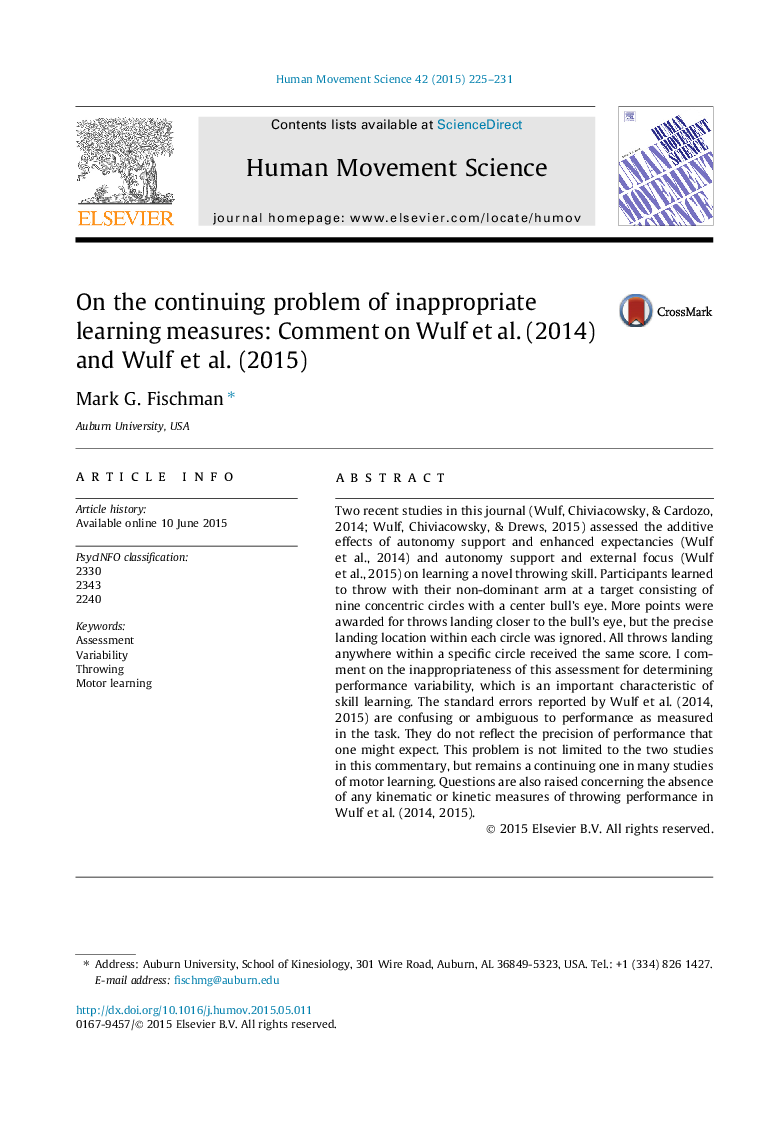| Article ID | Journal | Published Year | Pages | File Type |
|---|---|---|---|---|
| 928243 | Human Movement Science | 2015 | 7 Pages |
•Inappropriate measures of performance continue to appear in motor learning research.•1-Dimensional error scores are inappropriate for tasks that vary in 2 dimensions.•Performance variability is an important characteristic of motor skill learning.•2-Dimensional error measures have been available for 20 years and should be used.•Kinematic measures are important in studies of complex skills such as throwing.
Two recent studies in this journal (Wulf, Chiviacowsky, & Cardozo, 2014; Wulf, Chiviacowsky, & Drews, 2015) assessed the additive effects of autonomy support and enhanced expectancies (Wulf et al., 2014) and autonomy support and external focus (Wulf et al., 2015) on learning a novel throwing skill. Participants learned to throw with their non-dominant arm at a target consisting of nine concentric circles with a center bull’s eye. More points were awarded for throws landing closer to the bull’s eye, but the precise landing location within each circle was ignored. All throws landing anywhere within a specific circle received the same score. I comment on the inappropriateness of this assessment for determining performance variability, which is an important characteristic of skill learning. The standard errors reported by Wulf et al. (2014, 2015) are confusing or ambiguous to performance as measured in the task. They do not reflect the precision of performance that one might expect. This problem is not limited to the two studies in this commentary, but remains a continuing one in many studies of motor learning. Questions are also raised concerning the absence of any kinematic or kinetic measures of throwing performance in Wulf et al. (2014, 2015).
